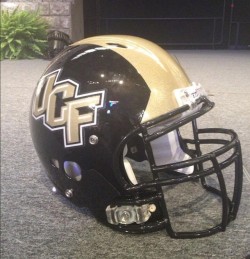Monthly Archives: December 2013
Sheetz is a local gas station and convenience store with a make-to-order kitchen where you’re ordering from a kiosk. The food is good, though overpriced. But they offer breakfast food throughout the day and I was in the mood for a breakfast burrito and biscuit sandwich.
While I was there, I saw a thing for gift cards. Which I thought was cool because I needed to get some gift cards for Christmas for my sisters-in-law (my wife’s sisters, and my brother’s wife). So I got a couple $25 cards as well as a name-your-own-amount card, for which I was going to go with $50.
Half of the transaction was denied, though. Though it should have been $100, it came out as $50. No matter, just swipe it again for the second $50. Transaction denied. Over and over again. Cancel out the whole thing and start from scrach. $100 becomes $50 and transaction denied on the $50.
I think the problem was that with the open-ended one. Even though I was only putting on there the same amount for that one card as for the two $25 cards, I suspect that card security freaks out with open-ended or high-amount gift cards. Which would make sense, when you think about it. I mean, if you had stolen someone’s credit card, getting a high-amount gift card is a better use for that money than most. It’s practically as good as cash. A way to suddenly have access to a large amount of funds without the credit card catching up with you mid-shopping-spree. And Amazon sells just about everything.
There are two reasons, though, that this doesn’t entirely make sense. First, those cards have to be activated. If they have to be activated, it seems to me that they can deactivate it upon being notified that it was an invalid sale. Or alternately you would still be able to trace it back. Wouldn’t you? It would be on Sheetz’s records what was purchased, and Amazon’s record what card was activated by that purchase and what was purchased with that activated card. On the other hand, that sounds like headaches? But I’d think it would actually make the loss prevention more effective rather than less, in the overall, because unlike them taking the card to Best Buy and then driving home (and no one knows where “home” is), Amazon has the address they sent it to.
The second reason why my theory might not pan out is that not only did my Discover Card not work (Discover’s card security seems to be higher than most, it gets blocked on a hair-trigger) but my debit card did as well. If they have my debit card, and access to my PIN number, gift cards would be secondary to ATMs or cashbacks. Then again, ATM’s may have cameras and there are withdrawal fees. But if you can shake that particular tree, it’s not “as good as cash” that you’ve got… it’s cash.
I guess there’s a third reason: If these things pose such a credit risk, why offer them? And if you can’t use credit cards to pay for them, how do you? If I’m getting a card worth $100, I’m not likely to have $100 on me.
In the end, I just took the two $25 cards and I’ll order the other gift card online.
Somehow – and I’m really not sure how – my wife ended up with a subscription to Bloomberg BusinessWeek. They just started arriving one way. If asked, I would have been vaguely interested in a subscription to Bloomberg BusinessWeek, but Clancy? Not really. Not really at all. Around the same time, Ladies Home Journal started arriving. If Bloomberg BusinessWeek was sent to her by mistake when I was the household member that might have been interested, Ladies Home Journal was a mistake altogether because there is nobody in this house remotely interested in reading that.
But Bloomberg BusinessWeek has turned out to be very good. Much better than the magazines I affirmatively subscribed to. So when I got a card from Bloomberg telling me that it was time to get a renewal at a ridiculously inexpensive rate, I figured it was worth it to do so. No free ride lasts forever and it was easily worth it.
Had I been thinking more clearly, I would have noticed that the card from Bloomberg was addressed to me and not Clancy. So the “renewal notice” had nothing to do with the fact that they’d been sending it to her.
And so… now I’m getting two copies of the magazine. His and hers.
Which is okay, I figure. My father and I are both named William Truman and now he can get a copy.
Despite my geeky tendencies, I am only a recent convert to the potential of technology in education. My reluctance here is due in part of the silliness of its boosters.
Apparently it’s not uncommon in India for girls to be named “unwanted” (or its hindi equivalent). The girls are changing their names.
The western half of the Trumanverse map would look mighty different if I’d known about the John Wesley Powell watershed map. Here’s one mapping all fifty states. Speaking of maps, here’s an interview with the man who is perhaps America’s best mapmaker.
Superheroes are a bunch of fascists! No, they’re not.
China’s newest city has a weird name: Detroit.
Loneliness is killing us.
As Taiwan becomes more competitive, wages go down.
Japan’s demographic cliff.
eHarmony’s blog asks how long should you wait before proposing (or expecting a proposal)?
If you want to attract people on your dating site, you should show pictures of yourself with other people.
Russians do pretty awesome online dating profiles.
Steven Taylor argues that one of the main reasons that we don’t have a third party is that we have the primary process as opposed to the parties selecting its nominees:
Indeed, I would argue that one of the main reasons we do not have serious third parties in the US is that the primary process allows a method by which groups dissatisfied with a mainline party to work from within that party (e.g., the reason that Ron Paul always ran for congress as a Republican, rather than as a Libertarian). Of course, the main manifestation of this phenomenon at the moment is the Tea Party. The Tea Party faction of the Republican Party has no incentive to go the third party route, but every incentive to take the primary route. Players play by the rules of a given game, and they adapt to the options that a given game allows.
It’s certainly the case that political parties in the United States are nimble. I can also believe that they are nimble in a way that prevents third parties from rising up because their issues end up getting absorbed into the main parties.
I’d argue, though, that in the constellation of reasons that we don’t have continuous third parties, it’s a relatively minor one. The bigger issues are well-explored. I will be exploring them further in a future post, but our lack of proportional representation, and our lack of a parliamentary system are the two largest factors. While there are other cases of nations that lack proportional representation that nonetheless have multiple parties, the electoral college throws yet another wrinkle on it because our mechanism for handling non-majority presidents provides significant disincentives.
In the UK, if none of the three parties get a majority, there is a process of handing the government to a coalition of sorts. It’s not perfect, but it’s there. The center-right party gets a plurality over the two center-left parties and what happens? The center-right party gets the executive. Or maybe that doesn’t happen and the two center-left parties form a coalition. What happens in the US when a candidate fails to garner a majority? Well, who knows? You have to get a plurality of a majority of the electoral votes. And if nobody does? Well, we do have a system for that, but it’s an incredibly lousy one without a semblance of predictability. This is above and beyond a first-past-the-post system and its limitations.
In the comments, Taylor mentions comparable countries that have room for alternative parties despite having elements similar to our own. In addition to the parliamentary countries, he mentions India which also has an electoral college. As a matter of custom, though, theirs works differently from our own. Most notably, perhaps, their selection system can cope with the question of what happens when nobody gets a majority. (Their president is actually typically elected unanimously, but I assume this only occurs because the outcome is not in doubt.)
Because of all of this, alternative parties in the US have to contend with the fact that they have no chance at the executive and can, at most, affect legislation. I have difficulty imagining that being successful even with party unity. Typically, when we do have independent legislators at the national level, it is with the implicit understanding that they will be aligned with one of the two major parties and the voters will know which one (Sanders, King, Lieberman, Goode in 2000, Jeffords if he had run again).
My concern with moving to a system where candidates are subject to their party’s preferences (and then voters choose between parties) is that we wouldn’t see the flexibility between parties that Taylor refers to and instead we would be quashing intraparty reforms where they might be necessary and democratic. I certainly have my issues with the Tea Party, and a part of me wishes that the “adults can take charge!” of the GOP, but the adults in the party were content to deny not just Christine O’Donnell and Richard Mourdock their day, but also Rand Paul and Marco Rubio. And perhaps unlike Taylor, I don’t see their day having come in an emergent alternative party. I may not like the trajectory of the GOP under the Tea Party, but I’d prefer it be sorted out democratically rather than by committee. It was a committee that chose Ken Cuccinelli.
 Regulation in DC is taking down a food truck icon.
Regulation in DC is taking down a food truck icon.
Progress! Bill Gates’s condom challenge is about to be met! This is important!
An Iowa truancy law wants you to drop the dime on your homeschooling neighbors. As an aside, we can have truancy laws, or we can require childhood vaccination to attend school, but I’m not sure we can do both.
Big Data is making some real headway on the human resources front. Uncle Steve points out that this isn’t new.
In 1992, Nugget II, the University of Southern Mississippi live mascot, died in a cloud of controversy. The case is back on.
New York is making the case that it no longer matters who can breathe whose air, we don’t want to watch people smoking (or looking like they are). Meanwhile, Heathrow Airport is setting up a vaping zone.
I am, on certain things at least, rather cynical. I rarely hear “smart growth” in contexts that lead me to believe that it is a referrence to anything but “limited growth” which is fine as long as you’ve got yours. Owen Courreges argies that easier growth is the real smart growth.
More distracting to drivers than mobile phones? Children. And since mobile phones are as bad as drunk driving, kids make drunk drivers out of the lot of us.
Here’s an argument against density: It allows you to smoke in your own home.
Bring the apprentice model to the US.
Mormons tend to like things upbeat, which presents problems in a cultural scene that prefers the dark.
Introducing, the $20,000 house!
Scott Sumner argues in favor of the Swedish model over the Finnish one:
I’ve often argued that the only reliable test of schools is the market test—which schools are more popular at a given price point. Tyler Cowen linked to a study that obliquely relates to this issue. It shows that South Korean students are the least happy students in the world. Finland’s students are near the bottom, and are the least happy of any Western European country. In contrast, South Korea usually scores at the top of “education rankings” based on test scores, and Finland is often in second place.
It’s interesting to compare Finland with its neighbor Sweden. Based on test scores Sweden has the worst schools in Western Europe, even worse than America’s K-12. Horrible schools. But their students are above average in happiness, far above Finland. What explains that difference?
We often think of Scandinavia as an “it” but there are actually some interesting contrasts within the region. Education is a good example. Though Sweden is often used as a liberal bat for liberal policies, there are some pokes for conservatives to hang their hat on, as well. Such as low-regulation and… education, which is highly voucherized. Finland, on the other hand, is exactly where liberals point to as the ideal setup: teachers are very well-paid (and respected), there is no school choice, and lots of money is spent.
But that’s kind of wear the political alignment ends. Then it starts to get weird. Because to follow what Sumner is saying, the virtues of the liberal system are demonstrated by the standardized tests that liberals loathe. The conservative system does very poorly on these tests, but produces happier students, which most conservatives would argue (in a vaccuum) is beside the point of the education system.
As always, I think it’s a mistake to look at Scandinavia and think “Our system should be more like theirs” (or less like theirs) based on the results there. Both can provide some insights, but not a template, really, unless you’re looking at a state like, well, Minnesota.
I am still a vouchers/charters guy. I square the circle in large part because, once choice has been entered into the equation, testing scores matter less. My support of standardized tests rests in good part on the premise that kids are stuck in the school systems they live in. If people would prefer to send their kids to some hippie-dippie schoolfield instead of a metrical killjoy academy, I am supportive of that. If a school wants to let teachers teach their own lesson plans in their own way regardless of what some bureaucrat in Washington or the state capital thinks, I think that’s cool. As long as parents can say “No way!” and send their kids somewhere else.
 A few random observations about college football leading up to the final week:
A few random observations about college football leading up to the final week:
I have been a critic of the uniform-of-the-week phenomenon in college football. What really gives me fits, though, is when the “alternate” uniform looks absolutely awesome. Or at least better than the “regular” one. A case and point, UCF’s regular uniform is nothing to brag about. Their alternate helmet, though, looks really cool The black and gold contrast is remarkably better than the gold-and-white. A couple years back, ECU adopted their alternate helmet on a permanent basis. UCF should do the same. Also, North Carolina State’s red helmet works a lot better than its white one, though I cannot put my finger on why, precisely, that is the case.
Speaking of UCF. It’s interesting to me that ESPN refuses their honor to be called UCF. Unless there is a reason not to, universities typically do get to be called what they want. UNC-Charlotte decided to go by Charlotte and has been called Charlotte ever since. The University of Central Florida decided some time back that it should be referred to as UCF on a permanent basis the same way that UCLA is called UCLA and Texas Christian University is called TCU and not Texas Christian. For whatever reason, ESPN continues to call them Central Florida in the long-hand. I suspect this is related to their rivalry with South Florida, which goes by USF and South Florida. Perhaps ESPN refuses to shift gears on Florida directionals.
In Louisiana, the battle goes on between Louisiana-Lafayette and the other universities in the state. Louisiana-Lafayette desperately wants to be called Louisiana and nobody else (Louisiana-Monroe, Louisiana Tech, LSU, and Tulane) wants this for one reason or another. Legally barred from referring to themselves as the University of Louisiana (without the city modifier), they’re trying to be Louisiana the same way that UCF wants to be UCF for athletic purposes. The difference between watching a game run by ULL’s TV production network (RCN) and ESPN is remarkable. In the case of the former, you never hear the word Lafayette unless they are referring to where the game is being played.
Now, on to the stuff that people actually care about…
The big question is whether or not the SEC champion, either Auburn or Missouri, each with one loss, will leapfrog the undefeated Ohio State team to play in the national championship game against Florida State, assuming that Florida State wins. This, of course, assumes that Ohio State wins. I think that underestimates Michigan State, whom the networks are pretty much rooting against at this point.
My view is that the Big Ten is a ridiculously weak conference and has been for some time. When I ran my analysis a few years back, they were actually weaker than the Big East and even the Mountain West Conference by a few of my 14 metrics. And who can forget Ohio State getting embarrassed two years in a row by SEC teams. But you know what? I don’t really care. Ohio State wins, Ohio State should be in.
This is in contrast to my view in time’s past. The SEC burned up my good will when they got the SEC-only championship game a couple years back. I believed, and believe, that the SEC is the best conference in college football, but that only takes you so far. They get the tie-breaker, but they don’t leapfrog other major conferences. Including the Big Ten. With the possible exception of Florida, every team in the SEC is there because they want to be there. Every one of them except possibly Kentucky or Mississippi State could, probably, snag an immediate invite to the Big 12 or ACC if they were to ask. But they want to be in the SEC because it’s the best conference there is. Well, that has its cost.
Relatedly: Complain all you want about Boise State’s weak schedule, but they are in the best conference that will have them. Provided that they are scheduling the best games they can, penalizing BSU for their schedule overlooks the fact that they want to play a tougher schedule (and indeed signed on to a conference across the country to try to make it happen). On the other hand, Northern Illinois got their shot last year and did not do well. It is my hope that Bowling Green puts an end to their repeat. This is partly because I would like to avoid another Kiddie Table Bowl like the year they matched TCU and BSU.
In the unlikely event that FSU and Ohio State both lose, an Alabama vs Missouri championship game becomes someone likely because SEC and because nobody respects Michigan State. I can live with that easier than I can live with 2011 because at least those two teams didn’t play one another in the regular season. Even so, I must confess I am getting a kick out of the deck being stacked against the SEC to continue their streak as an antidote to the previous stacking in favor of. Any SEC school that has a problem with that should give the Big 12 or ACC a call. Yet I still can’t bring myself to root for Ohio State, so in effect I suppose I am rooting for either Auburn’s or Missouri’s inclusion.
After this year, of course, the question of “which two teams?” should play for the title is replaced by the question of “which four teams?” should. Which will prove every bit as successful at avoiding controversy of ties as would be moving first base to 89 feet instead of 90. One can imagine that with the current lot of teams, the SEC would be arguing that the four playoff teams should include Alabama, Auburn, and Missouri. Because as we know, the SEC is such a bulletproof conference that two mediocre Big 12 teams that tried to play in it (let’s say, hypothetically, Texas A&M and Missouri) would get their clocks cleaned week in and week out. (Yeah, that’s me still being bitter about 2011.)
 For no particular reason, I was thinking of the old TV show Remington Steele today. Remington Steele, for those of you unfamiliar with it, was was about a female private investigator (Laura Holt) who wasn’t taken seriously and so created a fictitious male partner named Remington Steele. Enter Pierce Brosnan, the man who walks in and takes on the mantle of Mr. Steele.
For no particular reason, I was thinking of the old TV show Remington Steele today. Remington Steele, for those of you unfamiliar with it, was was about a female private investigator (Laura Holt) who wasn’t taken seriously and so created a fictitious male partner named Remington Steele. Enter Pierce Brosnan, the man who walks in and takes on the mantle of Mr. Steele.
The thought crossed my mind that they should do a remake of that show. It has an interesting and straightforward story that would be made more interesting with the passage of time. Namely, keeping Steele’s identity in the information age. It’s been long enough that a remake wouldn’t feel so forced. It’s exactly the sort of crime-show-that’s-not-a-cop-show that does really well with women. It has a built-in romantic angle. This would be a far better idea than the Ironside remake ever was.
So imagine my surprise when I google the show and find that NBC is considering doing a boot! For once, NBC was doing something right! Except not. It’s not a remake; it’s a sequel starring the daughter of Holt and Steele. And worse, it’s a half-hour sitcom.
Wrong, wrong, wrong.
The show was never popular or iconic enough to attempt a sequel-reboot (the way that Dallas was, for example). The show about the daughter of the guy who came in and assumed a fictitious identity isn’t nearly as interesting as the guy who came in and assumed a fictitious identity or the woman who created the identity. Unless they regurgitate the plot. In which case, what would be the point?
NBC could, as my mother likes to say, screw themselves out of a free lunch.
When bear cubs attack, and baby lions learn how to roar… they’re actually really cute.

